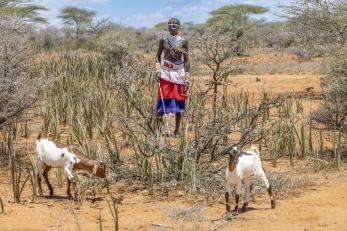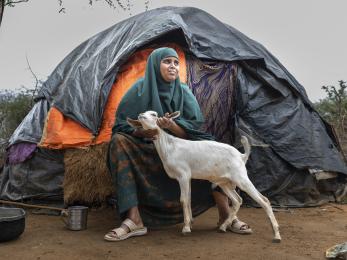Resilient Rangelands, Resilient Communities
Mercy Corps Kenya’s 10-Year Strategy for ASAL Transformation

Communities living in the arid and semi-arid lands (ASALs) of Kenya are among the poorest and most marginalized in the country. They are also the most vulnerable to climate-related shocks, which are increasing in frequency and intensity due to climate change. Livestock production is the main livelihood for households in these areas, and healthy and resilient rangelands are therefore a critical foundation for resilient households and communities.
To achieve a holistic, locally led approach to rangeland management that embeds participatory natural resource governance within broader supports to local market systems and governance institutions in Kenya, Mercy Corps Kenya, in collaboration with the Mercy Corps TEQ team, is pleased to announce the launch of the Rangeland Management Strategy.
This document articulates Mercy Corps Kenya’s rangeland management strategy for the next ten years. This strategy will guide our current and future work in Kenya’s rangelands, leveraging our experience, technical capacities, partnerships, and evidence to support transformational change at scale. Our overarching vision that guides this strategy is that ‘by 2035 the rangelands of Kenya’s drylands are supported by sound policies and public services and are sustainably governed and managed by communities for productive livelihoods, biodiversity, peace, inclusion, and adaptation to climate change’.
We pursue this vision through an integrated multisectoral programming strategy that brings together five interconnected thematic areas. Rather than existing in silos, these five programming components are deeply integrated with one another and work in tandem to address the interconnected challenges facing the rangelands. For each thematic area, the strategy outlines the thematic challenges and Mercy Corps’ approach, and highlights some of our past achievements and our vision for partnerships.
